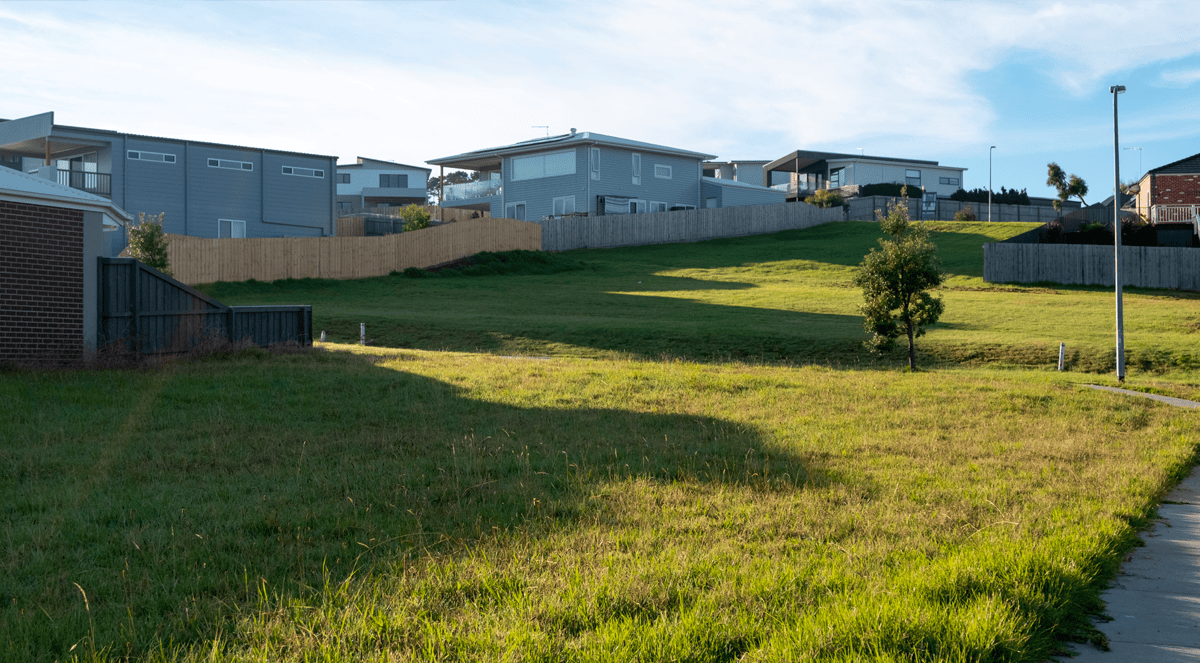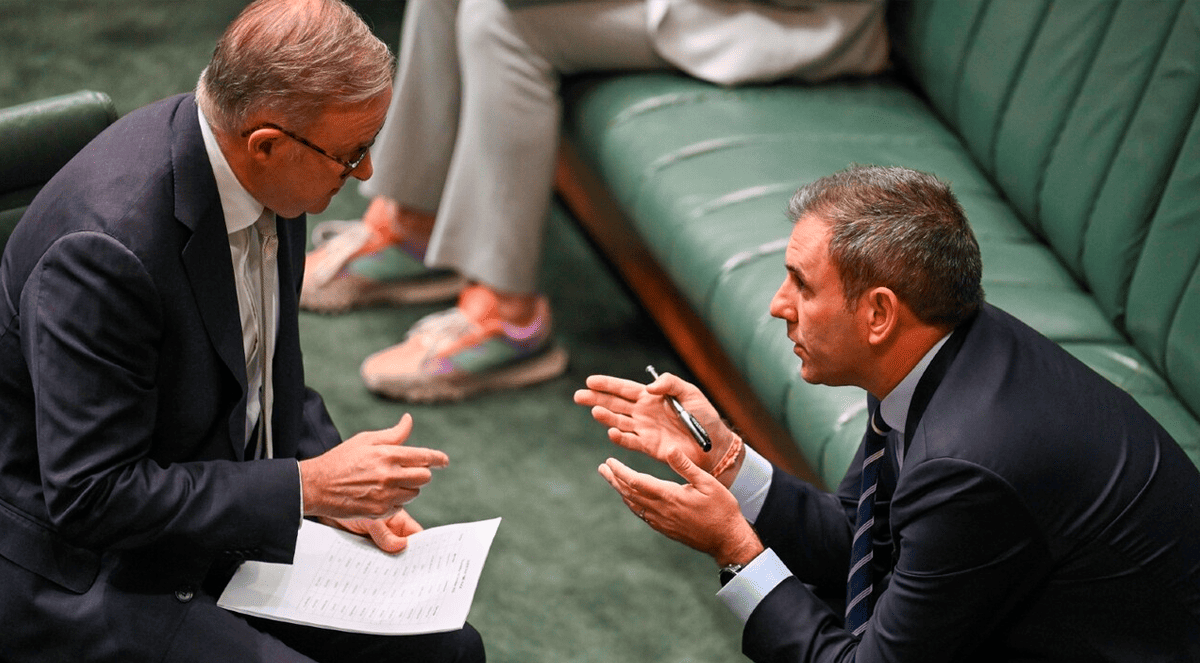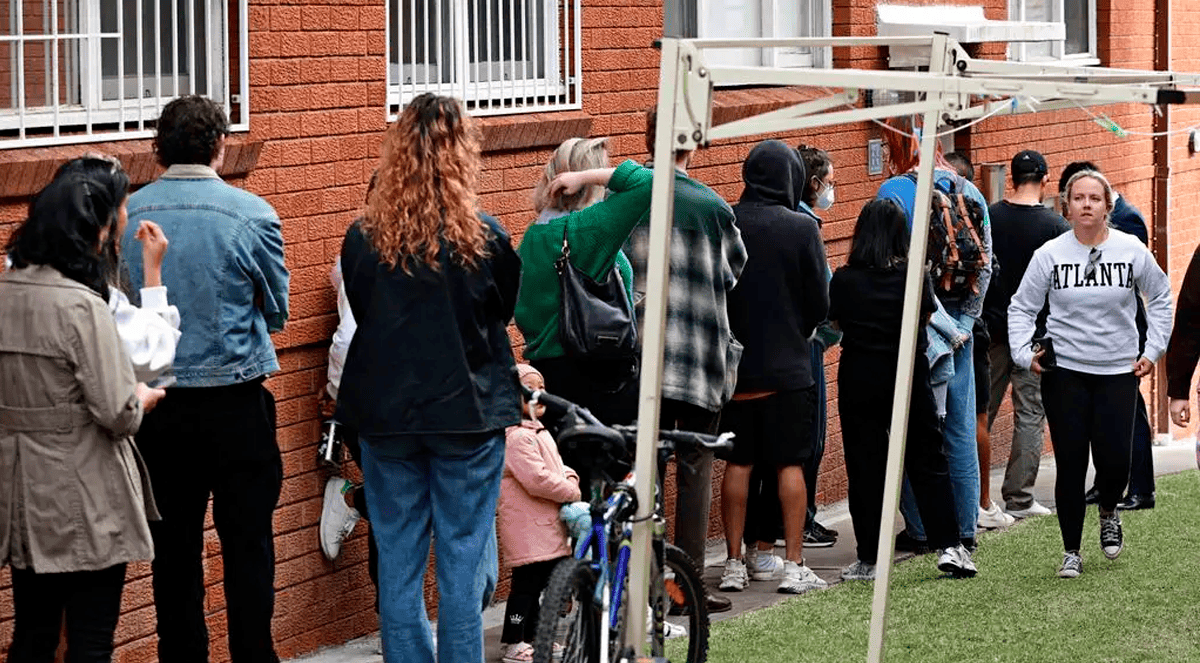Features > Property News & Insights > Market updates
Solving the housing crisis: The Pilkington Plan

KEY POINTS
- The new President of the Real Estate Institute of Australia (REIA) says incentivising private investors is the key to solving the housing crisis
- Real estate veteran Leanne Pilkington suggests first-time investors and “rentvestors” should get similar government assistance to first-home buyers
- Leanne Pilkington and the REIA are also calling for the abolition of state-based stamp duty taxes, saying they are preventing people from moving to more appropriate housing
One of Australia’s most experienced real estate professionals says governments could make an immediate start on solving the housing crisis if they were prepared to adopt a number of policy changes aimed squarely at property investors.
Leanne Pilkington, the new President of the Real Estate Institute of Australia (REIA), says the Albanese government’s aim of building 1.2 million well-located and affordable homes over the next five years and its shared equity housing scheme are “great” but points out that “they're all very long term” and questions whether “they're going to achieve those housing targets.”
Who is Leanne Pilkington?

In addition to taking on the role of REIA President, Leanne Pilkington is the CEO and director of the boutique real estate chain Laing+Simmons.
Her 40-year real estate career has seen her work in sales, property management, retail and commercial leasing and property development.
She is a past President of the Real Estate Institute of New South Wales, the founder of the Real Women in Real Estate, and a Director of the Real Estate Industry (REI) Super.
Somehow, she also finds time for charity work and is the current Chair of the Sister2sister Foundation, which runs mentoring programs for teenage and adolescent girls.
REIA’s plan
In the lead-up to May’s Federal budget, the REIA has published a comprehensive pre-budget submission.
The document includes several suggestions to boost home ownership and relieve some of the pressure in the overheated rental market.
It also suggests an increase in Commonwealth Rent Assistance and the establishment of a “Private Rental” taskforce, which would promote residential investment as an alternative asset class.
“Policy certainty must be provided by the Australian Government in the 24-25 Budget cycle,” the document says, “which includes maintaining the current negative gearing and Capital Gains Tax policy settings.”
Reward “Rentvestors”
“It's very frustrating that there are still people out there talking about…rent freezes and (curbing) negative gearing and all that sort of thing, when clearly we need more investment, not less,” Leanne Pilkington told the REB podcast network.
She says “more demand and less supply” obviously “puts upward pressure on prices”.
Her solution for more supply is to incentivise investors, particularly “rentvestors”.
“The government incentivises first-time buyers, but they're not incentivising first-time investors,” she says.
“So we think that rentvestors - there's a lot of people who…want to live in the inner city, for example, but can't afford to buy there, but they CAN afford to buy regionally or somewhere else - why not incentivise them to provide housing for somebody else?”
Stamp duty reform
The REIA and Leanne Pilkington have the abolition of state-based stamp duty firmly in their sights.
Ms Pilkinton says REIA’s analysis shows that getting rid of stamp duty on property transactions would positively increase supply by around 4%.
“State governments are just so addicted to the property taxes,” she says, “and what they don't understand is alleviating some of that pressure will mean people will transact more frequently.”
“It's good for the economy, because when people buy and sell property, it's not just real estate agents that are working.”
“It's conveyancers, it's solicitors, it's photographers…it's so many different things.”
Leanne Pilkington says high stamp duty rates are also discouraging people from moving to more appropriate housing - so-called “upsizing” or “downsizing” - as their household size grows or shrinks.
Build-to-rent and super fund investment is not the answer

Leanne Pilkington is sceptical of claims that large European or American-style “Build-to-rent” or BTR projects are a quick solution towards easing the housing shortage.
“It's really hard to get labourers to actually do the work, so it's not easy to make those developments stack up for the actual developer.”
Ms Pilkington also thinks superannuation funds investing in social or community housing projects are problematic.
She points to her board position on the REI Super.
“As a trustee, we have to make sure that we are acting in the members' best financial interests.”
“And if we can get 9 or 10 % return on other investments, which is what we do, it's very hard to justify that 3% or 4% return on (social housing) real estate is in the best financial interest of our members.”
The outlook
Leanne Pilkington says she doesn’t hold out much hope for any easing in the tight rental market.
At the same time, she says in her 40 years in real estate, she’s never seen a time where interest rates went up while home prices continued to rise.
“The low vacancy rates and higher rentals does mean that investment is looking more attractive,” she says.
“I'm actually just in the middle of purchasing an investment property for myself right now, for some of those reasons - So hopefully there'll be a few more people that do that.”
And her final advice to governments?
“It's incentivising private investors to come back into the market.”
“I know that there's no appetite to be incentivising people that already own a few properties, but we do know the majority of investors only own one property, and those are the people that potentially can buy another property.”
“I've got a lot of friends that have got kids in their early 20s.”
“They would absolutely help fund their kids into buying property if they could be a first-time investor,” she says.
“And so I honestly think that is the best place to start.”
Stay Up to Date
with the Latest Australian Property News, Insights & Education.




.png?width=292&height=292&name=Copy%20Link%20(1).png)
 SIGN UP FOR FREE NEWSLETTER
SIGN UP FOR FREE NEWSLETTER







%20Scott%20Kuru%20DPU%20145.jpg?width=1920&height=1080&name=Senate%20Inquiry%20Forced%20the%20RBA%20to%20Admit%20the%20Housing%20Crisis%20Will%20Never%20Be%20Fixed%20(It%20Was%20All%20a%20Lie)%20Scott%20Kuru%20DPU%20145.jpg)



%20Scott%20Kuru%20DPU%20141.jpg?width=1920&height=1080&name=The%20Senate%20Just%20Exposed%20Australias%20Biggest%20$80%20Billion%20Housing%20Fraud%20(Inquiry%20Launched)%20Scott%20Kuru%20DPU%20141.jpg)




%20Scott%20Kuru%20DPU136.jpg?width=1920&height=1080&name=Aussies%20Just%20Got%20Hit%20With%20Double%20Taxes%20on%20Everything%20(This%20Has%20Gone%20Too%20Far)%20Scott%20Kuru%20DPU136.jpg)


%20Scott%20Kuru%20DPU%20133.jpg?width=1920&height=1080&name=JUST%20IN%20Something%20Major%20Just%20Flipped%20Australia%E2%80%99s%20Property%20Market%20for%202026%20(No%20One%20Saw%20This%20Coming)%20Scott%20Kuru%20DPU%20133.jpg)


.jpg?width=1920&height=1080&name=Rental%20Prices%20At%20Record%20Highs%20And%20Vacancy%20Rates%20At%20All%20Time%20Lows%20(New%20Data%20Reveals).jpg)
%20%20DPU%20EP%2014.jpg?width=1920&height=1080&name=Investors%20Shutting%20Out%20First%20Home%20Buyers%20(Investors%20At%20Record%20Highs)%20%20DPU%20EP%2014.jpg)

.jpg?width=1920&height=1080&name=Darwins%20Property%20Market%20Boom%20or%20Dangerous%20Gamble%20(REVEALED).jpg)

.jpg?width=1920&height=1080&name=The%20RBA%E2%80%99s%20Rate%20Cut%20Could%20Explode%20House%20Prices%20(Here%E2%80%99s%20Why).jpg)








.jpg?width=1920&height=1080&name=Warning%2c%20You%20Might%20Be%20Facing%20Higher%20Taxes%20Soon%20(1).jpg)




.png?width=1920&height=1080&name=Rate%20Drops%20Signal%20BIGGEST%20Property%20Boom%20in%20DECADES%20(1).png)

.jpg?width=1920&height=1080&name=Labor%20vs%20Liberal%20These%20Housing%20Policies%20Could%20Change%20the%20Property%20Market%20Forever%20(1).jpg)
.jpg?width=1920&height=1080&name=QLD%20Slashes%20Stamp%20Duty%20Big%20News%20for%20Investors%20%26%20Home%20Buyers%20(1).jpg)
.jpg?width=1920&height=1080&name=Trump%20Just%20Slapped%20Tariffs%20%E2%80%93%20Here%E2%80%99s%20What%20It%20Means%20for%20Australia%20(1).jpg)
.jpg?width=1920&height=1080&name=Federal%20Budget%202025%20More%20Debt%2c%20No%20Housing%20%E2%80%93%20Here%E2%80%99s%20What%20You%20Need%20to%20Know%20(1).jpg)
.jpg?width=1920&height=1080&name=Australias%20Housing%20Crisis%20is%20about%20to%20get%20MUCH%20Worse%20(New%20Data%20Warns).jpg)
%20(1).jpg?width=1920&height=1080&name=Australias%20RENTAL%20CRISIS%20Hits%20ROCK%20BOTTOM!%20(2025%20Update)%20(1).jpg)
%20(1).png?width=1920&height=1080&name=Is%20Adelaide%20Still%20a%20Good%20Property%20Investment%20(2025%20UPDATE)%20(1).png)
.jpg?width=1920&height=1080&name=RBA%20Shocks%20with%20Rate%20Cuts!%20What%E2%80%99s%20Next%20for%20Property%20Investors%20(1).jpg)
%20(1).jpg?width=1920&height=1080&name=I%20Predict%20The%20Feb%20Rate%20Cut%20(My%20Price%20Growth%20Prediction)%20(1).jpg)
.png?width=1920&height=1080&name=Why%20Property%20Prices%20Will%20Rise%20in%202025%20Market%20Predictions%20(1).png)
.jpg?width=1920&height=1080&name=Why%20Investors%20Are%20Choosing%20Apartments%20Over%20Houses%202%20(1).jpg)
.jpg?width=1920&height=1080&name=Why%20Rate%20Cuts%20Will%20Trigger%20A%20Property%20Boom%20(1).jpg)
.jpg?width=1920&height=1080&name=Retire%20On%202Million%20With%20One%20Property%20(Using%20SMSF).jpg)
.jpg?width=1920&height=1080&name=4%20Reasons%20Why%20You%20Should%20Invest%20in%20Melbourne%20Now%20(1).jpg)
%20(1).jpg?width=1920&height=1080&name=Old%20Property%20vs%20New%20Property%20(Facts%20and%20Figures%20Revealed)%20(1).jpg)
%20(1).jpg?width=1920&height=1080&name=Will%20The%20New%20QLD%20Govt%20Create%20a%20Property%20Boom%20or%20Bust%20(My%20Prediction)%20(1).jpg)
%20Scott%20Kuru%20(1).jpg?width=1920&height=1080&name=Inflation%20Hits%20Three-Year%20Low%20(Will%20RBA%20Cut%20Rates%20Soon)%20Scott%20Kuru%20(1).jpg)
.jpg?width=1920&height=1080&name=How%20to%20Buy%20Investment%20Property%20Through%20SMSF_%20The%20Ultimate%20Guide%20(1).jpg)
.jpg?width=1920&height=1080&name=Victoria%20Slashes%20Stamp%20Duty%20Melbourne%20Set%20to%20Boom%20Scott%20Kuru%20(1).jpg)
.png?width=1571&height=861&name=Are%20Foreign%20Buyers%20Really%20Driving%20Up%20Australian%20Property%20Prices%20(1).png)
.jpg?width=1920&height=1080&name=The%20Single%20Factor%20That%20Predicts%20Property%20Growth%20Regions%20(1).jpg)
%20Scott%20Kuru%20(1).jpg?width=1920&height=1080&name=My%20Prediction%20On%20Rates%20%26%20Negative%20Gearing%20(Market%20Crash)%20Scott%20Kuru%20(1).jpg)

-1.png?width=1920&height=1080&name=Major%20Banks%20Cut%20Rates%20Will%20RBA%20Follow%20Suit%20(Sept%20Rate%20Update)-1.png)
%20Scott%20Kuru-1.png?width=1920&height=1080&name=Rate%20Cut%20Coming%20What%20New%20Zealands%20Move%20Means%20for%20Australia%20(Sept%20Prediction)%20Scott%20Kuru-1.png)
%20(1).jpg?width=1920&height=1080&name=Buy%20when%20the%20interest%20rates%20are%20high!%20(Why%20you%20must%20buy%20now!)%20(1).jpg)
.jpg?width=1920&height=1080&name=Carms_Revised%20Taxes%20Due%20Aug%209%20YT%20Thumbnail02%20(1).jpg)
.jpg?width=1920&height=1080&name=Carms_Too%20Little%20Too%20Late%20Aug%207%20YT%20Thumbnail01%20(1).jpg)









.jpg?width=1920&height=1080&name=Carms_Rate%20Drop%20In%20July%20Jun%2010%20YT%20Thumbnail02%20(1).jpg)
.jpg?width=1920&height=1080&name=Carms_Own%20a%20Property%20V6%20Jun%205_YT%20Thumbnail%20(1).jpg)









.png?width=1920&height=1080&name=Artboard%201%20(3).png)






.jpg?width=1920&height=1080&name=YT%20thumbnail%20%20(1).jpg)

